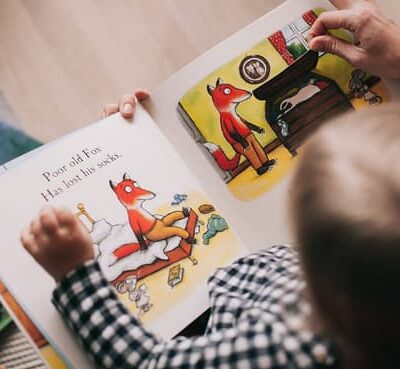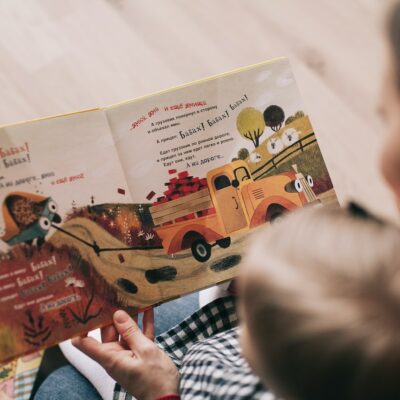The Positive Effects of Reading on Children and Adults

In an age where digital technology has overtaken our lives, reading retains its value as a means of enriching the mind and soul. It is not only the key to knowledge, but also a tool for developing empathy, critical thinking and self-improvement. Through books, we not only immerse ourselves in new worlds, but also find ways to better understand ourselves and the world around us. This article examines the effects of reading on children’s and adults’ personal development, stressing the value of reading for both intellectual and emotional development as well as for enhancing life quality, as shown in https://wien-hbf.at/.
Increased mental capacity
For little ones:
- Improving language competence: Early reading enhances word recognition, grammar understanding, and phonemic awareness.
- Mental stimulation: Regular reading stimulates the brain to form new neural connections, which favors memory and learning.
- Concentration and attention: The task of following the story of a book trains the ability to concentrate and stay focused on a particular activity.
For adults:
- Keeping the brain active: Regular reading serves to prevent diseases associated with cognitive decline, such as dementia and Alzheimer’s disease.
- Developing analytical skills: The analysis of literary storylines and characters fosters a deeper level of critical thinking.
- Vocabulary building: Adults who make reading part of their regular routine are continually exposed to new words and ideas.
Emotional and social growth
For the kids:
- Empathy. Children can “try on” other people’s lives through reading, which helps them comprehend and relate to the feelings of the characters. Building interpersonal relationships requires a deeper awareness of and respect for others’ sentiments, which is fostered by interacting with various people and their experiences. Children get empathy and sympathy that they may use in real life by reading books for young readers where characters deal with and overcome difficulties.
- Self-confidence. Mastering the skill of reading and reading comprehension increases children’s self-esteem because they feel more prepared for school assignments and general learning. Success in reading and comprehension makes children more confident in their abilities, which encourages them to achieve and learn more.
- A love of learning. Children who read are able to explore an infinite universe of information and excitement, which piques their curiosity and drives them to discover new things. This passionate interest in learning new things through books underpins a constant drive for education and self-improvement.
Regarding adults:
- Stress tolerance. Reading serves as an effective relaxation tool, allowing adults to disconnect from everyday life for a while and immerse themselves in another world. Psychologists attest that reading for even a little while each day can dramatically lower stress levels and enhance mental and physical health.
- Improving interpersonal relationships. Adults who read literature have a deeper knowledge of human relationships, motivations, and emotions, which improves their interpersonal interactions. People can better comprehend and accept diverse points of view by knowing about a range of characters and life situations. This fosters peaceful relationships.
- Developing Creative Thinking. Fiction and unconventional works not only entertain, but also encourage adults to develop their imagination and creativity. Reading offers new ideas and perspectives, supporting creative problem solving and finding out-of-the-box solutions in everyday life and at work.
Physical fitness and wellness
Reading before bed plays a significant role in improving sleep quality by ensuring a smooth transition of the brain from daytime activity to a resting state, which promotes a quicker fall asleep and reduces exposure to blue light from electronic devices. In addition, even short periods of reading throughout the day can noticeably reduce stress levels, allowing a person to temporarily distract themselves from piling on problems and worries. This not only calms the mind and body, but also stimulates brain activity in areas related to imagination and tranquility, providing emotional rest.

In an age where our attention is constantly divided between multiple tasks, reading requires and at the same time develops the ability to focus on one thing at a time, improving focus and self-discipline. By setting goals for the number of books read and reaching them, people not only improve their organizational skills, but also form useful life habits that promote discipline in various areas of life, including work, school, and personal projects.
Imagination and creativity development
Children can explore strange realms that spark their imagination and creativity through reading, which opens up a world of fantasy for them. These journeys through the pages of books are not only exciting, but also encourage young readers to create their own unique stories and worlds. Children are inspired to try in their own creative endeavours, ranging from writing to drawing, by the tales of the characters and their exploits. This fosters the growth of unconventional thinking and inventiveness.
For adults, reading is also a valuable source of creative inspiration, pushing the boundaries of their own creative thinking by exposing them to a variety of genres and styles. Books that illuminate complex life situations and offer unique solutions inspire adults to think creatively about real-life problems, learn to look at familiar things from a new angle and find unconventional solutions. Thus, reading becomes a powerful stimulus for the development of creativity and imagination in people of all ages, opening up limitless opportunities for self-expression and creative self-development.
Strengthening family ties
Strengthening family bonds through reading is a valuable way to not only spend time together, but to enrich relationships on a deep level. Bringing the tradition of reading together into the family unit strengthens relationships by creating special moments of fellowship and understanding. When families choose to read aloud regularly or discuss the books they read, it not only enriches their cultural and intellectual backgrounds, but also fosters common interests that can become the basis for deep and meaningful conversations. Such moments of shared reading become precious and unforgettable, bringing the whole family together and creating unique traditions passed down from generation to generation.
An important part of strengthening family ties is mutual understanding and support, which is deepened by reading books on common themes. This fosters a greater awareness of each other’s problems, fears and joys, strengthening the emotional bond between family members. Parents who demonstrate a love of reading to their children, whether it is personal reading or reading aloud, become living role models. This creates a positive attitude toward books and learning in general, laying the foundation for children’s future educational and personal growth. In this way, reading becomes a powerful tool for strengthening family bonds, providing not only entertainment but also promoting important life skills and values.









